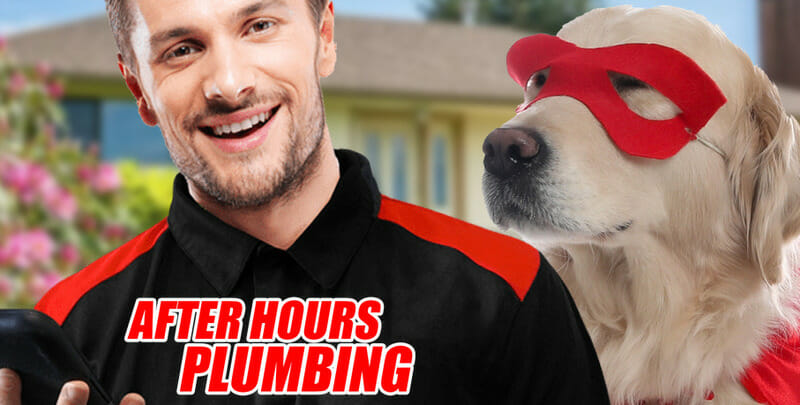Essential Tips for Clearing Blocked Stormwater Drains

When it comes to the smooth functioning of your property’s stormwater drainage system, you simply cannot overlook blocked drains.
A blocked stormwater drain can quickly become a nightmare, causing flooding, water damage, and many other problems. That’s why understanding essential tips for clearing blocked stormwater drains can be a lifesaver.
This blog post will explore the importance of maintaining clear stormwater drains, provide practical tips to tackle this common issue and explain how an expert can quickly resolve the issue. Whether you’re a homeowner or a property manager, these tips can save the day and protect your property from potential disaster.
Identifying the Warning Signs of a Blocked Stormwater Drain
A blocked stormwater drain may not always be immediately apparent, but there are several warning signs you can look out for to catch the problem early. You can take prompt action to prevent further complications by identifying these signs. Here are some common indicators of a blocked stormwater drain:
- Water pooling or standing in areas: It could be a sign of a blocked drain if you notice water collecting or pooling in specific areas of your property, particularly around downpipes water drains or grates. The water has nowhere to go, indicating a blockage in the drainage system.
- Slow draining or gurgling noises: When you notice water taking longer than usual to drain from sinks, toilets, or other plumbing fixtures, it could indicate a blocked stormwater drain. When you flush toilets or use water fixtures, gurgling sounds from gutters may suggest air is trapped in the blocked storm water drain.
- Foul odours: Unpleasant smells, such as sewage or rotting odour, emanating from drains or outdoor areas can indicate a blocked stormwater drain. The trapped water and debris in the storm water drain blocked can produce these odours, signalling a blockage in the system.
- Overflowing gutters or downpipes: During rainfall, if you observe water overflowing from gutters or downpipes rather than flowing smoothly, it could be due to a blocked stormwater drain. The excess water has nowhere to go and backs storm drains up, causing overflow in these areas.
- Sudden increase in insect activity: A sudden surge in mosquito or insect activity around your property could result from stagnant water in blocked drains. Mosquitoes are attracted to stagnant water and use it as breeding grounds, highlighting a potential drain blockage issue.
If you notice any of these warning signs, prompt action is essential. Ignoring a blocked stormwater drain can lead to further damage, such as flooding, water damage to your property, and even structural issues.

Common Causes of Blocked Stormwater Drains and How to Address Them
Blocked stormwater drains can occur due to various factors, and understanding the common causes can help you address the issue effectively.
By tackling the root causes, you can prevent future stormwater pipe blockages and ensure smooth water flow in your drainage system. Here are some common causes of blocked stormwater drains and how to address them:
- Accumulation of debris: The build up of leaves, twigs, dirt, and other debris in stormwater drains is one of the primary causes of blockages. Regular maintenance, such as clearing gutters and removing debris from grates, can help prevent this issue. Use gutter guards to minimise the amount of waste entering the drainage system and clean them periodically.
- Tree roots: Tree roots are notorious for infiltrating and causing blockages in your stormwater pipes and drains. They can penetrate through small cracks or joints in the pipes, causing obstructions. If you suspect tree roots are causing the blockage, it is best to consult a professional plumber who can use specialised equipment to clear the roots or repair the damaged pipes.
- Foreign objects: Accidental or intentional disposal of foreign objects like plastic bags, toys, or construction debris into stormwater drains can lead to blockages. If foreign objects have blocked stormwater pipes, it may be necessary to hire professional plumbing services to remove them safely.
- Structural issues: Over time, stormwater drains can develop structural problems such as cracks, collapses, or misalignments, leading to blockages. A professional plumber can assess the drainage and stormwater system using CCTV drain cameras to identify these issues. Repairs may involve relining the pipes or replacing damaged sections, depending on the severity.
- Insufficient slope or incorrect installation: Stormwater drains rely on gravity to ensure proper water flow. If the drains are not correctly installed or lack sufficient slope, water can accumulate and cause blockages. Addressing this issue may involve the land or adjusting the storm water drain’s alignment to ensure proper drainage.
Professional Solutions for Blocked Stormwater Drains: When to Call a Licensed Plumber
While some minor blockages in stormwater drains can be resolved using DIY methods, there are situations where it’s crucial to call a licensed plumber for professional assistance. Here are some scenarios where professional solutions are recommended:
Persistent or Recurring Blockages
If your stormwater drains are frequently getting blocked, despite your best efforts to clear them, it’s a sign of a more significant underlying issue. A licensed plumber can assess the situation, identify the root cause of the recurring drain blockages, and implement long-term solutions to prevent future problems.
Structural Damage
Professional intervention is necessary if your stormwater drains have sustained structural damage, such as cracks, collapses, or misalignments.
Plumbers with expertise in drainage systems plumbing maintenance can use advanced techniques like CCTV drain cameras to inspect the pipes and determine the extent of the damage. They can then recommend appropriate repairs or replacements to restore the functionality of the drains.
Blocked Drains Affecting Multiple Areas
If the blockage in your stormwater drains is causing backups and affecting excessive water flow in multiple areas of your property, it’s a complex issue that requires professional attention. Plumbers have the knowledge and equipment to handle such situations efficiently, ensuring the entire drainage system is cleared and restored to optimal working conditions.
Health and Safety Concerns
Blockages in stormwater drains can sometimes lead to health hazards and safety risks. For example, if sewage backup or foul odours indicate a potential sewer line issue, contacting a licensed plumber is crucial. They have the expertise to handle hazardous materials and can implement appropriate measures to ensure your property’s and its occupants’ safety.
Complex Blockage Removal
Certain blockages, such as those caused by tree roots deeply entrenched in the pipes or hardened sediment buildup, require specialised equipment and removal techniques. Professional plumbers are equipped with high-pressure hot water jets, drain augers, and other tools to effectively clear these stubborn blockages without causing further damage to the drainage system.
Remember, attempting complex blockage removal or repairs without the necessary expertise can exacerbate the problem and lead to additional expenses. It’s best to rely on the skills and knowledge of a licensed plumber specialising in stormwater drain issues.

Preventing Blockages in Stormwater Drains: Maintenance Tips and Best Practices
Prevention is always better than dealing with the consequences of blocked stormwater drains. By following these maintenance tips and best practices, you can significantly reduce the risk of blockages and keep your drainage system functioning smoothly:
- Clean overflowing roof gutters and remove any debris, such as leaves, twigs, and dirt, to prevent them from entering the stormwater drainage system.
- Install gutter guards that fit over your roof gutters to prevent debris from entering.
- If trees are on your property, regularly trim the branches and roots to prevent them from intruding into the stormwater drains.
- Dispose of waste properly, ensuring no foreign objects or materials enter the stormwater drains.
- Conduct periodic inspections of your stormwater drainage system.
- Consider scheduling regular maintenance checks by a licensed plumber experienced in stormwater drainage systems.
- If you’re a property manager, educate residents and property occupants about proper waste disposal and the importance of maintaining clear stormwater drains.
Regular attention to your drainage system will help it function efficiently, minimise the chances of flooding and water damage, and save you from costly repairs in the long run.
In Conclusion
Clearing blocked stormwater drains is a critical aspect of property maintenance that can save you from flooding, water damage, and costly repairs. By understanding the importance of clear stormwater drains and identifying the warning signs of blockages, you can take proactive measures to address the issue promptly.
When professional help is required or for persistent and complex blockages, it is recommended to call a licensed plumber with expertise in stormwater drainage systems like After Hours Plumbing.
Our team of experienced plumbers have the knowledge, tools, and techniques to effectively clear blockages and restore the proper functioning of stormwater drains connect pipes.
Please note: This information is provided for advice purposes only. Regulations differ from state to state, so please consult your local authorities or an industry professional before proceeding with any work. See After Hours Plumbing’s Terms & Conditions here.
